WASHINGTON — In July, as lawmakers were putting the final touches on a $716 billion defense authorization bill for fiscal 2019, members of the Congressional Progressive Caucus unveiled their own plans to severely slash Pentagon spending.
“The Trump agenda drastically cuts programs supporting working families … while giving massive tax cuts to big corporations and bloating the military budget beyond belief,” their proposed spending plan stated. “(This plan) takes a very different path, reinvests in American families, and prioritizes funding for education, health care, jobs and clean air and water.”
The plan called for reductions in the base Pentagon budget, eliminating overseas contingency spending and “achieving a smaller force structure through gradual attrition.” The caucus, a more liberal wing of the Democratic Party which includes 77 current House members, hopes the document would serve as a blueprint for the mainstream Democratic leadership should they take control of the chamber next year.
It received strong backing from Pentagon critics like Peace Action, Just Foreign Policy and Win Without War but only passing conversation from more moderate Democrats. But it has also served as a convenient boogeyman for Republican backers warning that a “blue wave” in the upcoming midterms would mean drastic cuts in defense spending and a backslide into a less prepared fighting force.
In recent campaign speeches, President Donald Trump has repeated his mantra that “our military will soon be the strongest it has ever been in the history of our country” thanks to Republican moves in the last two years. He has accused the rival political party of being weak on national security and naive on the need for a better-funded military force.
With a sizable number of Republican retirements in Congress and polls showing the possibility of significant Democratic pick-ups of district seats, military advocates may soon have to grapple with the possibility of again lobbying a politically divided government.
If Republicans hold on to both chambers, much of the defense debate on Capitol Hill will remain unchanged from the past year: a push for bigger defense budgets, focus on modernization and readiness improvements, and status quo on oversight of a host of overseas military operations. But predicting exactly what a Democratic takeover of the House or the Senate would mean for defense priorities next year remains unclear.
While party leaders have stressed their desire to plus-up the budgets of non-military agencies, many want to pay for that through tax hikes rather than Pentagon cuts. The $716 billion defense authorization bill received support from nearly three-fourths of the Democrats in the House, including numerous members of the progressive caucus.
Democrats on both chambers’ armed services committees fought with their Republican colleagues on a nuclear build-up and transgender recruitment this year, but also broadly backed plans for equipment upgrades and have largely supported Trump’s Defense Department nominees.
And defense issues barely received a mention in the “Better Deal” policy priorities list unveiled by House Minority Leader Nancy Pelosi and Senate Minority Leader Chuck Schumer last spring. Instead, that document focuses on issues like health care, infrastructure improvement and government corruption.
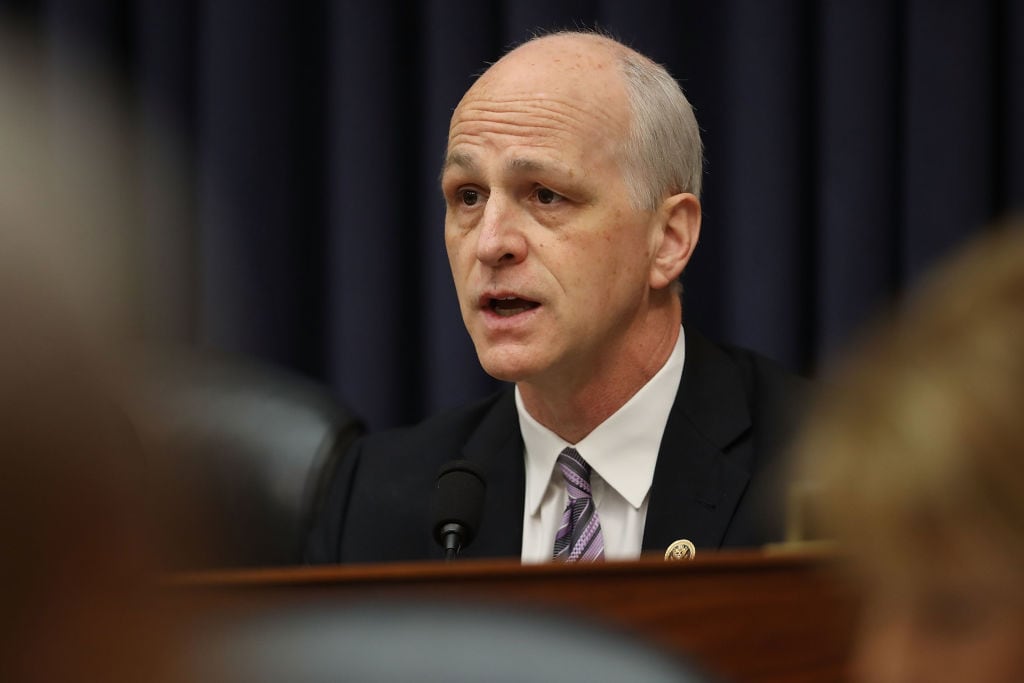
HASC chairman Adam Smith?
If Democrats win either the House or the Senate, the main faces of their defense policy will be the new armed services committee chairs: Washington Rep. Adam Smith and Rhode Island Sen. Jack Reed.
Of the two, Smith has generally been the more outspoken. The 11-term congressman has has worked well with current HASC chairman Mac Thornberry, R-Texas, in advocating for a host of defense issues, but he has also been known to vote against defense spending over the years to defend the domestic side of the budget.
But in recent months, he has cast himself as more of a foil to the president’s unchecked military growth, even boasting about conservative fears of his potential chairmanship during a recent debate.
“If you read conservative opinions about, ‘what if the Democrats take back the House,’ one of the biggest arguments is ‘you can’t let Adam Smith be chairman of the Armed Services committee because he wants to cut the defense budget’ — and they’re right,” he said at an Oct. 16 event. “I think there’s way too much waste, way too much inefficiency.”
RELATED
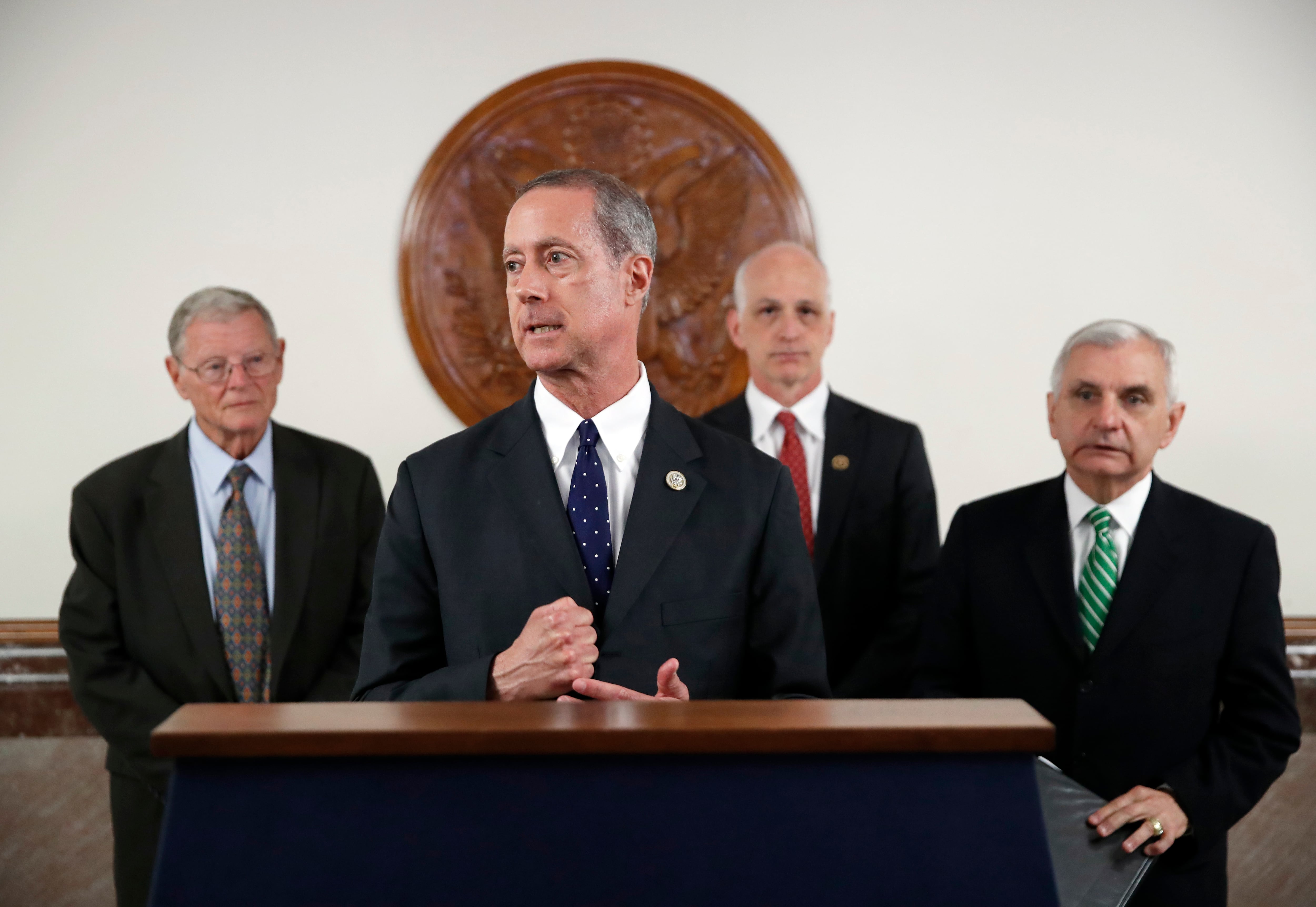
Smith said as chairman, he would push for Congress to reassert its oversight role, particularly in places like Niger and Yemen, where U.S. involvement is little understood by the American public. He wants the committee “actively engaged” in fighting for the rights of women and members of the LGBTQ community to take part in military service however they desire.
And he, like House Democratic leaders, has called for the post-2001 war authorizations to be repealed and replaced with new parameters for sending troops overseas.
“The Trump White House, by and large, has let the Pentagon have a lot of free rein,” Smith said. “I think that’s inappropriate, and I think there is a real role for Congress to step in where the White House has stepped back to make sure our military is not engaged in ways” contrary to American values or interests.
Smith is a supporter of another base closure round, a smaller role for the U.S. military in the world, and a smaller nuclear weapons arsenal. He opposed Trump’s proposed 355-ship Navy and has touted his votes to end building Northrop Grumman’s B-2 bomber and Lockheed Martin’s F-22 fighter.
He has blasted Republican tax cuts as incompatible with defense increases.
“We’ve got debt, we’ve got a deficit, we’ve got infrastructure problems, we’ve got health care, education. There’s a whole lot that is necessary to make our country safe, secure and prosperous,” Smith said at the Defense News conference in September. “And you have to look at it within the entire picture.
“How much of that pie can go to defense? And I think we are going to take a more realistic look at that and then try to figure out how to fund it.”
Still, Smith has backed recent Republican-led defense budgets, including the largest year-over-year defense spending increase in 15 years. He said the FY19 total was “too much money” but got his vote because it was linked to domestic spending.
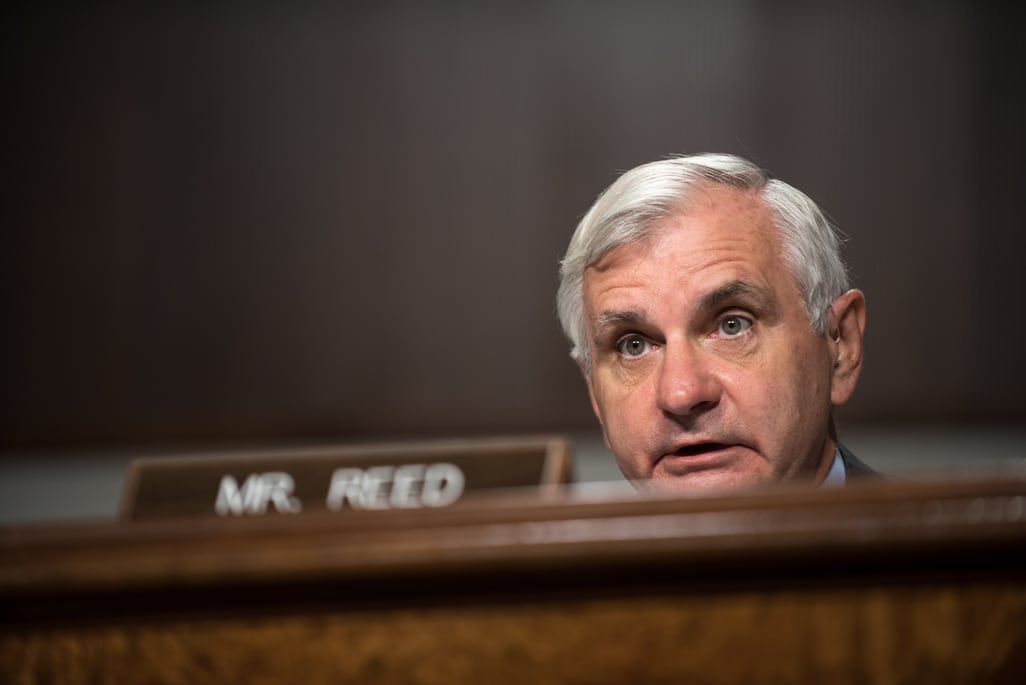
SASC chairman Jack Reed?
Like Smith, Reed came into Congress in 1997 and has served as the top defense Democrat in his chamber for the last few years. Unlike Smith, the soft-spoken former Army Ranger has taken less of a public role than Smith, keeping most of his political posturing on Capitol Hill and off national news shows.
In an interview with defense reporters earlier this month, Reed laid out an agenda for 2019 that closely mirrored priorities already emphasized by his Republican colleagues: More oversight over defense acquisition, more investigation into foreign adversary military aggression, more investment in military modernization, especially in artificial intelligence.
But like Smith, Reed has talked about the need to boost non-defense spending even while backing bigger military budgets.
“National security is not just the Department of Defense,” he said. “When you talk about the domestic side of the ledger, you’re also talking about homeland security, FBI, a host of other programs.
“To say we’re just going to increase the top line (for defense), it’s not going to help national security … This is not just ‘if you get one, I get one.’ For national security, we have to lift (spending) caps on both sides of the ledger.”
Reed has also been critical in recent months of Trump’s interactions with Russian President Vladimir Putin, calling their meeting in July “disgraceful” for the United States and blasting the U.S. president for sounding “like Putin’s press agent.”
If he becomes chairman, that topic is likely to be a recurring focal point of the Senate hearing schedule. The defense authorization bill passed this summer included several provisions focused on supporting NATO and checking Russia, and Reed has said he’ll make enforcement of those issues a top priority.
RELATED
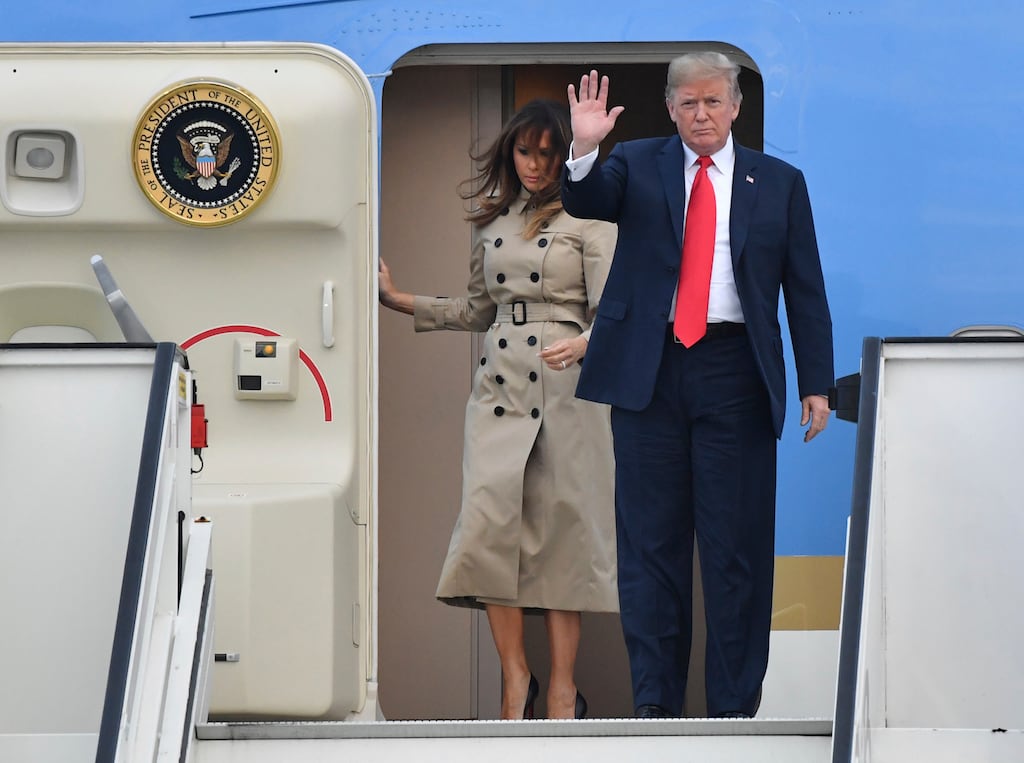
Reed has been largely supportive of Trump’s defense nominees, frequently praising Defense Secretary Jim Mattis as a calming voice within the administration. But that support could change if a Democratic-led Senate has enough votes to stop them from entering office.
Earlier this year, the SASC ranking member said the appointment of John Bolton as national security adviser “makes our country less secure and more prone to recklessness on the national security front,” indicating broader dissatisfaction with Trump’s defense strategy.
And if Democratic leaders outside the committee decide to stall all nominees because of other policy disputes, it would spill over into Reed’s committee work, possibly paralyzing a host of Pentagon offices.
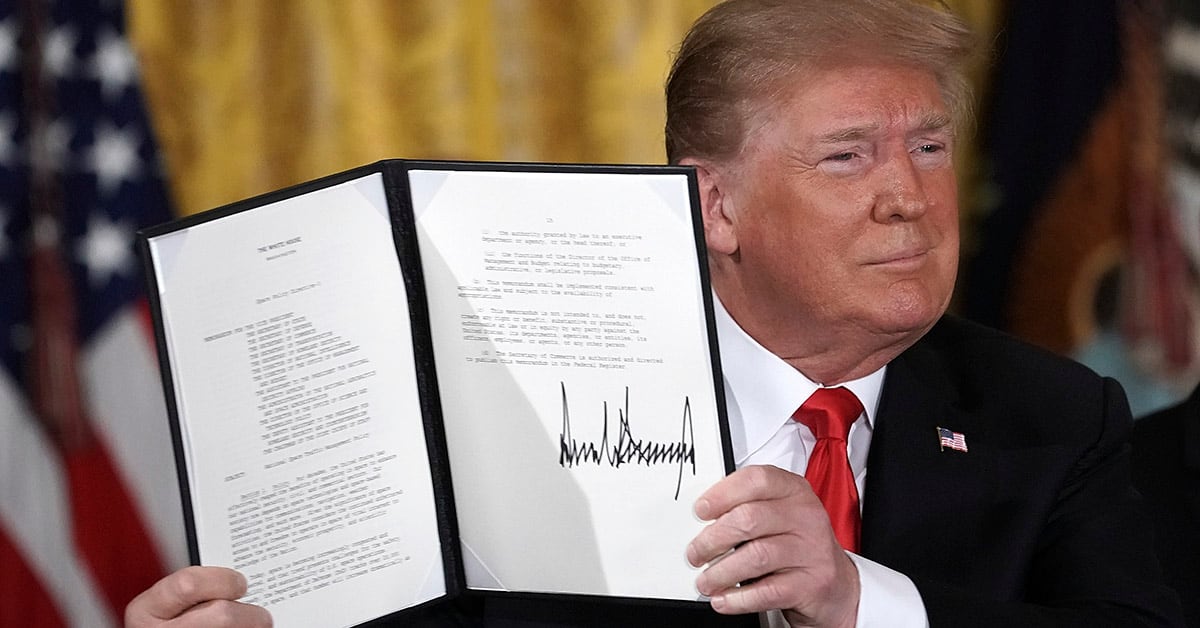
Space Force showdown
One of the first big fights for a new Congress next year — and a template for how Democratic defense lawmakers will have to balance party loyalty with military policy — will be over the White House’s push to create a new armed service dedicated to space.
Trump has touted a sixth military branch as an idea that has “been well received even in Congress, bipartisan.” In fact, the plan, which some estimates put at adding almost $16 billion in defense spending over five years, has proven to be controversial among both parties.
But several Democrats have also voiced support for the idea, including Smith, who in public remarks last month called Trump’s proposal “a good idea.”
Less than a week later, after internal pressure from his Democratic opponent and other party members, Smith released a statement to say he would “work toward a smarter, more effective approach.”
He then noted concerns the proposal “would create additional costly military bureaucracy at a time when we have limited resources for defense and critical domestic priorities, and I do not believe it is the best way to advance U.S. national security.”
Reed in August said he does not like the idea, noting that “a separate service with all of the infrastructure and the bureaucracy is not the way to go.”
But regardless of their opinions now, both men’s positions on the issue in January may be controlled by the larger issues surrounding military space policy: whether Democrats are pushing for defense funding cuts, whether Trump ties the issue to other controversial topics, or whether the opposition party simply wants to deprive the president of any political wins.
And that’s before the inevitable tangling of military policy with immigration fights, larger budgeting issues and the intensifying politics around U.S. support for a Saudi-led offensive in Yemen.
The mid-term elections will be held on Nov. 6.
Leo covers Congress, Veterans Affairs and the White House for Military Times. He has covered Washington, D.C. since 2004, focusing on military personnel and veterans policies. His work has earned numerous honors, including a 2009 Polk award, a 2010 National Headliner Award, the IAVA Leadership in Journalism award and the VFW News Media award.
Joe Gould was the senior Pentagon reporter for Defense News, covering the intersection of national security policy, politics and the defense industry. He had previously served as Congress reporter.




